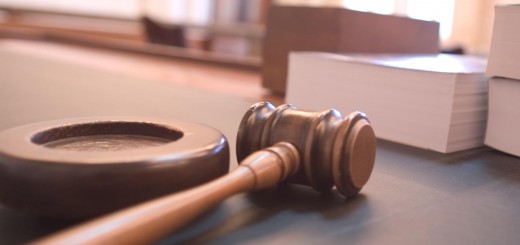The Clash of the Beer Titans
Much to the disappointment of Canadians, hockey does not really find its way into the news in the middle of summer. However, earlier in July, a decision was handed down by the Ontario Court of Appeal that answers a question of national importance: whose beer advertisements will dominate hockey ads? The lawsuit pit two of the country’s biggest brewers, Labatt and Molson, against each other. The brewer that comes out on top would have the biggest sponsorship deal in the history of the National Hockey League (NHL). In the age of social media, brands like Molson and Labatt are integrating their beers into the everyday lives of its drinkers. The opportunity to grow their brands would be unparalleled.
On July 12, 2011, Molson-Coors Canada (Molson) won the right to spend $375 million over the next seven years on NHL sponsorship across North America. The Ontario Court of Appeal dismissed the claims of the NHL’s former sponsor, Labatt Brewing Company (Labatt). Essentially, the justices on the highest court of Ontario set aside the decision by Justice Newbould at the trial level based on the legal principle that judges should not independently determine a case based on theories that were not advanced in the proceedings. That would be contrary to the adversarial process, and patently unfair.
Facts
In Labatt Brewing Company Limited et al vs. NHL Enterprises Canada, L.P. et al, Labatt brought an application to the Ontario Superior Court of Justice against the NHL, Molson-Coors Canada, and related companies regarding beer sponsorship rights. Labatt’s sponsorship deal with the NHL terminated as of June 30, 2011. Subsequently, the NHL and Labatt entered into an exclusive negotiation period; Labatt sought to renew their deal for three years. At around the time that Labatt and NHL were drafting the final documents, Molson entered into the picture. After successful negotiations between Molson and the NHL, they signed a seven-year contract during which Molson would have exclusive sponsorship rights in the North American market.
An Exclusive Negotiation Period?
In the first proceeding, Labatt argued that the NHL had extended the exclusive negotiation period indefinitely. Albeit unsigned, an agreement on the terms of the renewal had been reached. The NHL denied that the exclusive negotiation period was indefinite. Further, the renewability provision was unenforceable, they argued. It was merely an agreement to agree.
Justice Newbould of the Ontario Superior Court of Justice took the position of Labatt. He found that the NHL did in fact extend the exclusive negotiation period indefinitely and that the parties arrived at a binding and exclusive agreement. That would have precluded the NHL from entering into any further talks with Molson.
Not Advanced by Counsel
The Ontario Court of Appeal overturned the decision by Justice Newbould for the reason that his decision was based on a theory and legal principle that had not been advanced by counsel. Specifically, the way in which Justice Newbould interpreted the renewal provision, from which he drew his final conclusion, was not grounded in the pleadings, evidence, positions or submissions of either of the parties. Justice Newbould himself interpreted the renewal provision in such a way that a binding sponsorship agreement had been reached.
First, the Ontario Court of Appeals found that Labatt did not plead that the parties had reached a binding sponsorship agreement. Labatt did not make this claim at any point during the hearing either. Furthermore, the application judge never raised the issue of whether a sponsorship agreement had been reached with the NHL or Molson during the parties’ oral submissions. In summary, the appeal ruling stated: “[A]t no time during the application hearing did Labatt assert that a binding sponsorship agreement existed between the parties” and “the application judge did not raise this issue with the NHL or Molson during their submissions.”
If the defendants were aware of the fact that the issue for determination was the binding sponsorship agreement, then they would have conducted its defense in a different manner. As a result of these findings, the Ontario Court of Appeal struck down the lower court’s decision.
Prejudicial and Inherently Unreliable
At the end of the day, this case was decided on procedural fairness. It is a well known that judges cannot impose legal liability where legal liability was not advanced by a claimant. In paragraphs 61 to 63 of the 2002 case of Rodario v. Royal Bank of Canada, Justice Doherty held that it was fundamentally unfair and inherently unreliable for a trial judge to make findings against a defendant on the basis of a theory of legal liability not advanced by the claimant.
The judicial system in Canada pivots around the adversarial process, whereby truth can only be attained after contestation and competition between two opposing parties. If the parties are denied the chance to examine and cross-examine a legal principle or theory, then the court would not have confidence in that legal principle or theory. So, if the theory of liability first appears in the reasons for judgment, and is not tested by the adversarial process, then it must be dismissed.
Conclusion
For most Canadians, the ruling in July is important insofar as Molson beer advertisements will flood our television and computer screens — from Tampa Bay Lightening games to Twitter feeds. For parties entering into negotiations, however, this case may carry even more weight. Parties need to more cognizant of where they are in the negotiations and understand the status of their discussions at all times.






Join the conversation